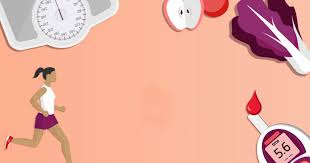Content of the Article
- What is Diabetes?
- What Causes Diabetes?
- Who Gets Diabetes?
- What are the symptoms of diabetes?
- Diabetes Treatment
- What Causes Diabetes?
- How to Cure Diabetes?
- Herbal Treatment Methods for Diabetics
- Can Diabetes Cure?
- What Happens If Diabetes Progresses?
- How to Prevent Diabetes?
- Latest Developments in Diabetes Treatment
Diabetes, medically known as diabetes, has become an increasing health problem today. Changes in people's lifestyle and eating habits play an important role in the spread of this disease. There are many factors that cause diabetes. The most common is the inability to properly produce or use the hormone insulin in the body. This condition leads to abnormal increases in blood sugar levels. So, how to cure diabetes? In this article, we will discuss in detail why diabetes occurs and how to cure it.
What is Diabetes?
Diabetes is a condition in which the body produces insufficient insulin hormone or cannot use it effectively. As a result, blood sugar levels rise and serious health problems occur in the long term.
Diabetes, which basically has two different types, Type 1 and Type 2, is affected by many factors such as genetic factors, obesity, lifestyle and environmental factors. Type 1 diabetes usually occurs in childhood or adolescence and is a condition in which the pancreas does not produce enough insulin. Type 2 diabetes is usually seen in adults and is a condition in which the insulin produced by the body cannot be used effectively enough.
Symptoms of diabetes include constant thirst, frequent urination, extreme hunger, weakness, weight loss, fatigue, blurred vision and skin problems. These symptoms should be taken into consideration and a doctor should be consulted immediately to prevent further deterioration of the person's health condition.
If diabetes is not controlled, serious complications are likely to occur. These include heart disease, kidney problems, vision loss, nerve damage and foot problems. However, diabetes can be controlled with regular exercise, a healthy diet and medication.

What Causes Diabetes?
Let's take a look at the causes of diabetes, which arise from many different reasons:
- Genetic predisposition: Genetic factors play an important role in diabetes. If someone in your family has diabetes, you are at higher risk.
- Obesity: People who are overweight have a higher risk of developing diabetes. Fats accumulated in the body reduce the effectiveness of insulin and negatively affect blood sugar levels.
- Sedentary lifestyle: A sedentary lifestyle increases the body's resistance to insulin. People who do not exercise regularly have a higher risk of diabetes.
- Wrong eating habits: High-carbohydrate foods contribute to the development of diabetes. Processed carbohydrates, especially white bread, rice and pasta, raise blood sugar quickly.
- Stress and emotional factors: Chronic stress causes hormonal imbalances in the body and insulin resistancencauses e. Emotional factors are also known to increase the risk of diabetes.
- Smoking and alcohol use: Smoking and excessive alcohol consumption are factors that can lead to diabetes. It is known that smoking increases insulin resistance in the body and negatively affects pancreatic functions.
- Age: Increasing age increases the risk of diabetes. The incidence of diabetes increases especially after the age of 45.
- Polycystic ovary syndrome: Also known as PCOS polycystic ovary syndromeIt is associated with hormonal imbalances in the reproductive system. Women with PCOS are more prone to diabetes.
- Hypertension: High blood pressure is a risk factor for type 2 diabetes. You should have your blood pressure checked regularly and maintain a healthy blood pressure level.
- Having had gestational diabetes in the past: If you have had diabetes during pregnancy in the past, your risk of type 2 diabetes increases later in life.
- Other health problems: Some health problems can be risk factors for diabetes. These include heart disease, kidney disease and sleep apnea.
Remember, the causes of diabetes are complex and different factors play a role in each individual.

Who Gets Diabetes?
Although it can be seen in all age groups, it is more common in some people due to some risk factors. Groups at higher risk of developing diabetes include:
- Family history: Diabetes has a genetic predisposition. People with a family history of this disease are more commonly diagnosed with diabetes. It should not be forgotten that individuals may also be at risk if there is diabetes in first-degree relatives (parents, siblings) in the family.
- Age: Advancing age increases the risk of diabetes. The incidence of this disease is higher, especially in people aged 45 and over.
- Obesity: Being overweight or obesity is one of the most important factors that increases the risk of diabetes. People with a body mass index (BMI) of 25 and above are more prone to the risk of diabetes.
- Sedentary lifestyle: Not doing regular physical activity and adopting a sedentary lifestyle during the day also increases the risk of diabetes. Exercising and an active lifestyle help reduce the risk of diabetes.
- Nutrition habits: Unbalanced and unhealthy diet increases the risk of diabetes. While consumption of high amounts of sugar and processed foods increases the risk of diabetes, consumption of fiber and low glycemic index foods reduces the risk of diabetes.
- Gestational diabetes: Gestational diabetes, which occurs during pregnancy, increases the risk of diabetes in women. Women with gestational diabetes are a group that is more likely to develop diabetes in the future.
- Patient history: In patients with diabetes, accompanying health problems such as fatty liver, high cholesterol, hypertension and heart disease are more common.
- Ethnicity: Diabetes is more common in some ethnic groups. For example, people in South Asia, the Middle East, and the Caribbean regions are more likely to have diabetes.

What are the symptoms of diabetes?
The symptoms of diabetes, which can be controlled with appropriate treatment and lifestyle changes, are a little difficult to notice. We can indicate the symptoms of diabetes as follows:
- Constant feeling of thirst: People with diabetes lose more water to regulate their body's excess sugar levels. This leads to a constant feeling of thirst. If you constantly feel thirsty and your thirst cannot be quenched, you should be evaluated for diabetes.
- Frequent urination: High sugar levels cause the production of extra water in the urine. When excess water is lost through urine, the frequency of urination increases. If you feel the need to go to the toilet more often than usual, you should be careful.
- Extreme fatigue and weakness: High sugar levels in the blood prevent sufficient energy and glucose from reaching the cells. This leads to a feeling of extreme fatigue and weakness. If you experience fatigue that lasts longer than normal and cannot be relieved by inactivity, you may suspect diabetes.
- Eye problems: High sugar levels can damage retinal tissue and cause vision problems. Problems such as blurred vision, double vision or a constant burning sensation in the eyes may be symptoms of diabetes.
- Dry mouth and delayed healing of wounds: A feeling of dry mouth may also occur due to the constant feeling of thirst. Additionally, the healing process of wounds is prolonged in people with diabetes. If you experience dry mouth and notice that you have sores that last longer than usual, this may indicate diabetes.
Symptoms of diabetes may vary from person to person and sometimes be mild. However, if you are experiencing one or more of these symptoms, it would be beneficial to consult a healthcare professional and have the necessary tests done. With early diagnosis and treatment, diabetes can be controlled and serious complications can be prevented.

Diabetes Treatment
This disease, which occurs as a result of insulin resistance or inadequate functioning of the pancreas, reduces the quality of life and causes serious health problems. Fortunately, there are many options for treating diabetes. Methods used in the treatment of diabetes are as follows:
- Diabetes medications: Many medications are available for the management of diabetes. Your doctor will prescribe what is appropriate for you to keep your blood sugar under control. These can usually be oral antidiabetics or insulin injections. Medication helps regulate your blood sugar and reduces the risk of complications.
- Nutrition Schedule: A healthy nutrition program is of great importance in the management of diabetes. A low-carb, low-sugar diet helps keep blood sugar under control. Staying away from foods containing sugar and consuming more fiber foods will help balance your blood sugar.
- Exercise: Regular exercise is important for diabetics to balance blood sugar and reduce insulin resistance. Exercising causes the body to spend energy and helps keep your blood sugar at lower levels. You can determine the appropriate exercise program together with your doctor.
- Stress management: StressIt is a trigger for diabetes and can raise your blood sugar. You can reduce your stress levels by trying activities such as stress management techniques, yoga, meditation or deep breathing exercises.
- Regular check: Regular doctor check-ups are important in the treatment of diabetes. Monitoring your blood sugar levels helps manage your treatment and detect possible complications early.
Diabetes treatment is a complex process, but it can be controlled with the right methods. Taking the right medications, following a healthy diet, exercising regularly, managing stress and having regular check-ups with your doctor will help you cope with diabetes. Remember, it is important not to interrupt treatment and adapt to healthy lifestyle changes.

What Causes Diabetes?
This disease, which affects people's daily lives, is associated with wrong eating habits and genetic factors. Diabetes occurs when the insulin hormone is produced insufficiently or when cells become resistant to insulin.
Diabetes can also lead to many different health problems. Here are the main conditions caused by diabetes:
- Cardiovascular diseases: Diabetes negatively affects cardiovascular health. High blood sugar levels cause damage to blood vessels and cholesterol may cause accumulation. This increases the risk of heart attack or stroke.
- Eye problems: Diabetes is associated with a number of complications in the eyes. Diabetic retinopathy occurs when the retinal vessels at the back of the eye are damaged. As a result, vision loss or blindness may occur.
- Kidney diseases: High blood sugar levels can impair kidney function. Diabetes increases the risk of kidney failure. This is called diabetic nephropathy, and over time, kidney failure can develop.
- Nerve damage: Diabetes can cause damage to peripheral nerves. This situation, tingling in hands and feetIt may cause symptoms such as numbness or burning. Additionally, diabetic neuropathy can cause dysfunction in certain organs.
- Foot problems: The feet of diabetic patients are of special importance. Wounds, infections or ulcers may occur on the feet due to nerve damage and poor circulation. If this condition is left untreated, it can lead to serious foot problems.
- Wound healing problems: The skin of diabetic patients heals slowly. Wounds or cuts take much longer to heal than usual. This is because high blood sugar weakens the immune system, increasing the risk of infection.
- Other health problems: Diabetes can also cause dental disease, skin infections, sexual dysfunction, digestive problems and even depression It can also cause a number of other health problems, such as:

How to Cure Diabetes?
This disorder, which people are increasingly experiencing, can be controlled with the right treatment and lifestyle changes. So how to cure diabetes?
- In particular, herbs such as cinnamon bark, blackberry leaf, turmeric and ginger have a blood sugar-lowering effect. You can support your body against diabetes by adding these plants to your daily diet.
- Reviewing your eating habits is an important step in controlling diabetes. Staying away from processed foods and switching to natural foods can regulate your blood sugar. High-fiber foods gradually increase blood sugar and help balance insulin release. It is important to consume healthy foods such as white meat, whole grain products, vegetables and fruits instead of red meat.
- Another method that will be good for diabetes is regular exercise. Exercise helps control blood sugar and makes better use of insulin in the body. Aerobic activities such as walking, running and swimming can be an effective defense against diabetes. Doing at least 150 minutes of moderate physical activity a week reduces the risk of diabetes and keeps the existing disease under control.
As a result, people with diabetes need to make lifestyle changes and follow a regular treatment plan. Since each individual's body is different, treatment methods also vary from person to person.

Herbal Treatment Methods for Diabetics
Herbal treatment methods against diabetes aim to support the health of the body by using the natural ingredients of various plants. Here are herbal treatment methods for diabetes:
dwarf palm
Dwarf palm plant helps balance blood sugar. It reduces insulin resistance and keeps blood sugar levels under control.
Canary herb
Ragweed is known for its blood sugar-reducing effect. Consuming it daily helps diabetics keep their blood sugar under control.
Curry leaf
Curry leafIt is known for its blood sugar controlling effects. You can add it to meals or consume it as tea.
Cinnamon
Cinnamonis an herbal supplement effective in lowering blood sugar. It can be consumed by adding it to meals and drinks, or mixed with warm water and drunk.
Ginger
The anti-inflammatory properties of ginger help lower blood sugar. You can consume ginger in the form of tea or add it to meals.
Blueberries
BlueberriesIt is a powerful source of antioxidants for diabetes. It lowers blood sugar levels and reduces insulin resistance.
Broccoli
Broccoli is an herb that is effective in lowering blood sugar levels. The antioxidants and fiber it contains provide protection against diabetes.
Celery seed
Celery seedIt helps regulate blood sugar thanks to the compounds it contains. You can add it to your meals or consume it as tea.
Fennel
FennelIt is beneficial for diabetics because it can help balance blood sugar. You can consume it as tea or add it to meals.
Hibiscus tea
Hibiscus teais a natural drink that helps lower blood sugar levels. Drinking a few glasses a day benefits diabetics.
It is important to consult a specialist before using herbal treatment methods for diabetes. The effects of herbs may be different for each individual and it is recommended to use them in a controlled manner.

Can Diabetes Cure?
Diabetes, also known as diabetes, is a chronic disease and cannot be completely cured. However, it can be controlled and symptoms can be alleviated with the right treatment and lifestyle changes.
There are two types of diabetes: type 1 and type 2. Type 1 diabetes usually begins in childhood or adolescence and causes the pancreas to not produce enough insulin. In this case, blood sugar must be regulated with insulin injections. Type 1 diabetes does not go away, but can be controlled with regular treatment.
Type 2 diabetes is generally associated with lifestyle factors and genetic factors. To prevent the progression of this type of diabetes and relieve its symptoms, lifestyle changes such as a healthy eating plan, regular exercise, weight control, and stress management are recommended. While type 2 diabetes can be controlled, it may become treatable in some people. However, it is important to manage diabetes by having regular check-ups with your doctor and following their recommendations.
Remember, diabetes progresses differently in each individual. While the symptoms are under control in some people, the effects may be more severe in others. Therefore, personalized treatment plans are important and require regular follow-up.

What Happens If Diabetes Progresses?
Diabetes can lead to serious health problems if left untreated. The consequences of progressive diabetes are quite serious and negatively affect the person's quality of life.
- First, the progression of diabetes can lead to insulin resistance and advanced insulin resistance. Insulin resistance is a condition in which the body does not respond to the hormone insulin, making it difficult to regulate blood sugar. In this case, it becomes more difficult to keep blood sugar under control and blood sugar levels remain constantly high.
- High blood sugar levels lead to serious health problems in the long run. Progressive diabetes increases the risk of cardiovascular diseases. Damage to arteries caused by high blood sugar can lead to serious consequences such as heart attack and stroke.
- Additionally, the progression of diabetes can damage other organs. Many organs such as kidneys, eyes, nerves and feet can be affected by diabetes. Long-term uncontrolled course of diabetes can cause kidney failure, blindness, nerve damage and foot problems.
As the disease progresses, the patient's daily life is also negatively affected. Diabetics have to regularly check their blood sugar, pay attention to their diet and take medication constantly. With advancing diabetes, these treatment methods become more complex and the quality of life of patients decreases.

How to Prevent Diabetes?
So is it possible to prevent diabetes? The answer is definitely yes. Here are the important steps that can be taken to prevent diabetes:
- Exercising regularly: Sedentary lifestyle is one of the biggest causes of diabetes. Exercise helps balance blood sugar levels by keeping the body active. Exercising at least 150 minutes a week at moderate intensity reduces the risk of diabetes.
- Eating healthy: A balanced and regular diet significantly reduces the risk of diabetes. Consuming high-fiber foods, whole grains, fruits and vegetables helps regulate blood sugar.
- Avoiding excessive sugar consumption: Sugar has negative effects on the body, and excessive sugar consumption increases the risk of diabetes. Consumption of foods and drinks containing refined sugar should be limited.
- Managing stress: Stress can cause many health problems and diabetes is one of them. You can use techniques such as yoga, meditation and deep breathing to manage stress.
- Regular sleep: Adequate and quality sleep is important in preventing diabetes. Try to get regular sleeping habits by creating your sleep routine.
- Control against risk: The main factors that increase the risk of diabetes are obesity, genetic predisposition and age. Controlling these risk factors is of great importance in preventing diabetes.
Of course, it may not always be possible to completely prevent diabetes. However, by taking the precautions mentioned above, you can minimize the risk of diabetes and live a healthy life. Remember, healthy living habits are the basic step in preventing any disease. Take care of yourself and make the right choices for a healthy life.

Latest Developments in Diabetes Treatment
In recent years, there have been significant developments in the treatment of diabetes. Research and studies enable the development of more effective and personalized treatment methods for people with diabetes.
Insulin therapy is one of the latest developments. Thanks to developing technology, insulins that can be taken by inhalation are now produced without the need to inject insulin into the body. This method provides people with a more comfortable treatment opportunity.
In addition, there are great advances in the drugs used in the treatment of diabetes. New generation drugs are very effective in regulating blood sugar by reducing insulin resistance. Thanks to these medications, patients' compliance with treatment increases and difficult-to-control diabetes can be managed more easily.
In addition, gene research conducted in recent years has also produced promising results in the treatment of diabetes. Thanks to these studies, the treatment approach is determined according to the genetic characteristics of the patients and a more personalized treatment plan is created.
Especially with the development of artificial intelligence and technology, individually suitable diet programs and exercise programs can be created for people with diabetes. In this way, the treatment process can be managed more effectively by determining the most appropriate treatment method for the patient's daily life and needs.
Developments in diabetes treatment in recent years offer patient-oriented and personalized treatment methods. With drug developments, insulin therapy, gene research and technology, people with diabetes can now be treated more effectively and comfortably. Thanks to these developments, it is aimed that people with diabetes can lead their daily lives with a better quality.
As a result;
Diabetes is caused by many different factors and is often affected by insufficient physical activity, poor eating habits, excess weight, stress and genetic factors. The most effective way to get rid of diabetes is to adopt a healthy lifestyle. Exercising regularly, eating a balanced diet, maintaining a healthy weight and avoiding stress strengthen your defenses against diabetes.
In addition, it is also important to check your blood sugar regularly and use the medications recommended by your doctor. If you do not want to get diabetes, make it a habit to review your lifestyle and make healthy choices and do not forget to have regular check-ups with your doctor. A healthy lifestyle is the key to preventing diabetes.










